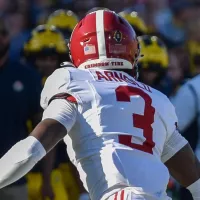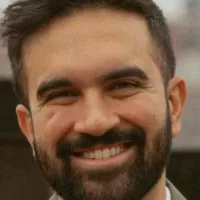Club Sporting Cristal S.A., commonly known as Sporting Cristal, is a Peruvian sports club based in Lima, primarily recognized for its soccer team. Established on December 13, 1955, in the Rímac district, the club was founded by engineer Richard Bentín Mujica and his wife Esther Grande de Bentín, shareholders of the Peruvian brewery Backus and Johnston. Since its founding, Sporting Cristal has maintained a strong connection with the brewery, earning it the popular nickname 'los Cerveceros' (the Brewers).
1926: Sporting Tabaco Founded
In 1926, a club from Rímac ward, known as Sporting Tabaco, was founded and originally belonged to the tobacco growers' union. This club was later bought by Ricardo Bentín to become Sporting Cristal.
December 13, 1955: Club Sporting Cristal Founded
On December 13, 1955, Club Sporting Cristal was founded in the Rímac district of Lima, Peru, by engineer Richard Bentín Mujica and his wife Esther Grande de Bentín, who were stockholders of the Peruvian brewery Backus and Johnston.
December 1955: Club Founded as Sporting Cristal
In December 1955, the club was officially founded as Sporting Cristal, named after Backus' best-known beer brand, Cristal.
March 1956: Peruvian Football Federation initially blocks Cristal's participation
In March 1956, the Peruvian Football Federation (FPF) initially blocked Cristal's participation in that year's championship. They cited reasons such as advertising prohibitions and the requirement for club names to honor national heroes, places, or institutions.
1956: Champion of Peru Invitation
As a champion of Peru in 1956, Sporting Cristal was invited to tour various parts of the world in 1962.
1956: Sporting Cristal wins first national title
In 1956, Sporting Cristal debuted in the professional Primera Division and won their first national title that same year.
1956: First Title in Peruvian Primera División
In 1956, Sporting Cristal played its first year in the Peruvian Primera División and won the title that year, starting a legacy of success in the league.
1960: Biggest Result Against Alianza Lima
In 1960, Sporting Cristal achieved its biggest victory against Alianza Lima, with a score of 5-0.
June 1961: Stadium Inauguration
On June 9, 1961, the stadium, initially named "Estadio Fray Martín de Porres", was officially inaugurated, serving as Sporting Cristal's home ground.
1961: Champion of Peru Invitation
As a champion of Peru in 1961, Sporting Cristal was invited to tour various parts of the world in 1962.
1962: Copa Libertadores
From the 1962 edition until the 1969 edition, Sporting Cristal went on a 17-game undefeated streak in the Copa Libertadores, marking the longest unbeaten streak in the tournament's history.
1962: World Tour and Didí Signing
In 1962, Sporting Cristal embarked on its first world tour, playing 30 matches across the United States, Asia, and Spain. That same year, they signed Brazilian legend Didí as their coach. Didí had just won the 1962 World Cup with Brazil.
1963: Runners-up in Peruvian League
In 1963, under the guidance of coach Didí, Sporting Cristal finished as runners-up in the Peruvian league.
1966: Best Team Peru in Historic Table
In the 2018 season, Sporting Cristal achieved the distinction of becoming the best Team Peru in the Historic Table during the Professional Era (1966-2018), surpassing Universitario with 3264 points to their 3236 points.
1966: Start of Peruvian Primera División
Since the Peruvian Primera División began to be played in 1966, Sporting Cristal and Universitario de Deportes have won the largest number of titles, solidifying their rivalry.
1967: Didí Returns
In 1967, Didí returned to Sporting Cristal as the technical director, leading the team to another runner-up position that year.
1968: Sporting Cristal Wins
In 1968, Sporting Cristal won the Descentralizado championship after an extra match against Juan Aurich, with Alberto Gallardo scoring both goals in the 2-1 victory.
1968: "Backus" removed from the club's name
In 1968, the controversy surrounding the club's name ended when the word "Backus" was finally removed from Sporting Cristal's name, following impositions from the Peruvian Football Federation.
1969: Copa Libertadores
From the 1962 edition until the 1969 edition, Sporting Cristal went on a 17-game undefeated streak in the Copa Libertadores, marking the longest unbeaten streak in the tournament's history.
1970: National Title under Vito Andrés Bártoli
In 1970, Sporting Cristal won the national title under the technical direction of Argentine coach Vito Andrés Bártoli, after a hard-fought tournament against Universitario de Deportes. The team won its last match against Juan Aurich 4-2.
1972: Universitario in Copa Libertadores Final
Since 1972, when Universitario played against Independiente, Sporting Cristal has come closest to the Copa Libertadores Final.
1975: Fuerza Oriente Founded
In 1975, Fverza Oriente, the first ultra group of Sporting Cristal, was founded and located in the eastern grandstand of the stadiums.
1978: Copa Libertadores Defeat
In 1978, Sporting Cristal lost to Alianza with a score of 4-1 in the Copa Libertadores.
1978: Brief Change to Blue Shirts
In 1978, Sporting Cristal temporarily changed its shirt color from light blue to blue, marking a brief departure from their traditional colors.
1981: Brief Change to Blue Shirts
During a brief period between 1978 and 1981, Sporting Cristal temporarily used blue shirts.
1982: Return to Light Blue Shirts
In 1982, Sporting Cristal reverted to using light blue as the color of the club's shirts, restoring their traditional appearance.
1987: Biggest Win on the Road
In 1987, Sporting Cristal achieved its biggest win ever against Alianza on the road, defeating them 4-0 at the Estadio Alejandro Villanueva.
1991: Extremo Celeste Formed
In 1991, Extremo Celeste was formed by young fans from Fuerza Oriente, becoming one of the biggest barras bravas in Peru.
1991: National Title with Juan Carlos Oblitas
In 1991, Sporting Cristal won a national title under the guidance of coach Juan Carlos Oblitas, marking the beginning of a successful decade for the club.
1994: National Title with Juan Carlos Oblitas
In 1994, Sporting Cristal won a national title under the guidance of coach Juan Carlos Oblitas, marking the beginning of a successful decade for the club.
1994: Tricampeón Title
In 1994, Sporting Cristal won the first of three consecutive league titles, marking a period of dominance for the club.
1995: Copa Libertadores Win
In 1995, Sporting Cristal secured a 3-0 win against Alianza in the Copa Libertadores.
1995: Tricampeón Title
In 1995, Sporting Cristal secured its second consecutive league title as part of its tricampeonato, consolidating their position as a leading team in Peru.
1995: National Title with Juan Carlos Oblitas
In 1995, Sporting Cristal won a national title under the guidance of coach Juan Carlos Oblitas, marking the beginning of a successful decade for the club.
1996: Tricampeón Title
In 1996, Sporting Cristal achieved a historic milestone by winning its third consecutive league title, earning the title of tricampeón.
1996: National Title with Sergio Markarián
In 1996, Sporting Cristal won the league title with Sergio Markarián as head coach, continuing their successful run in the 1990s.
1997: Copa Libertadores Runner-Up
In 1997, Sporting Cristal reached the final of the Copa Libertadores but lost to Cruzeiro, marking their best performance in the competition.
2000: Copa Libertadores Qualification
From 2000, Sporting Cristal consistently remained at the top of the national tournament, earning qualification for the Copa Libertadores for eight consecutive years.
2002: National Title
In 2002, Sporting Cristal won a national title with notable players such as Sergio Leal, Jorge Soto, and Luis Alberto Bonnet.
2004: Biggest Defeat
In 2004, Sporting Cristal suffered its biggest defeat, losing 5-0 to Alianza Lima while playing with an alternate team.
2005: National Title
In 2005, Sporting Cristal won a national title with notable players such as Sergio Leal, Jorge Soto, and Luis Alberto Bonnet.
2007: Close to Relegation
In 2007, Sporting Cristal narrowly avoided relegation, finishing just four points away from the drop.
2007: Third Ultra Group Created
In 2007, a smaller third ultra group was created in the western grandstand to support Sporting Cristal.
2008: Copa Libertadores Qualification
In the 2008 season, Sporting Cristal made a comeback and qualified for the Copa Libertadores once again.
2009: Tournament Restructuring
In 2009, the Primera División Peruana changed its tournament structure, leading to mediocre results for Sporting Cristal for several years.
May 2012: Stadium Renamed to Estadio Alberto Gallardo
On May 19, 2012, the former "Estadio San Martín de Porres" was officially renamed "Estadio Alberto Gallardo" in honor of former footballer Alberto Gallardo.
2012: National Champion
In 2012, Sporting Cristal ended a seven-year title drought by becoming national champion, defeating Real Garcilaso in the finals.
2013: Copa Libertadores group stage
In 2013, Sporting Cristal qualified to the 2013 Copa Libertadores where they did not pass the tournament's group stage.
2014: Copa Libertadores Qualification
In the 2013 season, Sporting Cristal finished third in the liguilla, earning qualification for the 2014 Copa Libertadores.
2018: Torneo Descentralizado Final
In 2018, in the final of the Torneo Descentralizado, Sporting Cristal won against Alianza Lima with a resounding aggregate result of 7-1, marking the largest final in the history of Peruvian football.
2018: Best Team Peru in Historic Table
In the 2018 season, Sporting Cristal achieved the distinction of becoming the best Team Peru in the Historic Table during the Professional Era (1966-2018), surpassing Universitario with 3264 points to their 3236 points.
2020: 20th Title
In the 2020 season, after a bad start and the departure of coach Manuel Barreto, Roberto Mosquera returned, and Sporting Cristal won its twentieth title by beating Universitario in an aggregate of 3-2 in the final.
2021: Last National Championship Played
In 2021, the last national championship was played between Sporting Cristal and Alianza Lima.
2022: Club's right to use stadium
In 2022, Sporting Cristal's right to use Estadio Alberto Gallardo, owned by the Peruvian Sports Institute, expires.
Trending
40 minutes ago Kyle Anderson's Injury Status: Won't Play Friday, Doubtful Monday, Iffy Wednesday

41 minutes ago Sheppard Urges Terrion Arnold: Focus on Playing, Reduce Talk; Improvement Needed
41 minutes ago Sonny Styles impresses NFL teams: Interview with Panthers and Giants interest.

24 hours ago Governor Whitmer's final State of the State address focuses on Michigan's future.

2 hours ago David Bailey shines as top defensive prospect at NFL Combine, impressing scouts.

2 hours ago Mamdani and Trump Discuss Housing at White House Meeting; Pitches Investments
Popular

Jesse Jackson is an American civil rights activist politician and...

Susan Rice is an American diplomat and public official prominent...

Barack Obama the th U S President - was the...

XXXTentacion born Jahseh Dwayne Ricardo Onfroy was a controversial yet...

Michael Joseph Jackson the King of Pop was a highly...

Kashyap Pramod Patel is an American lawyer who became the...

